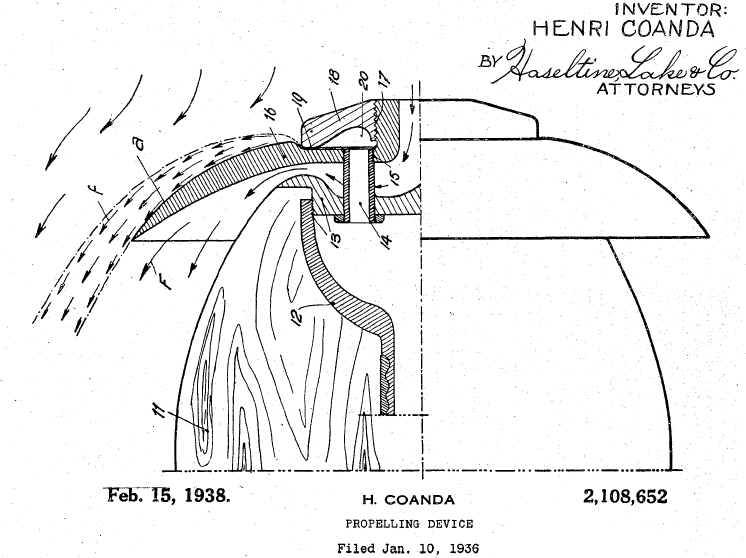
Click here to download the US Coanda Patent US 2,108,652 (pdf)
Click here to download the French Coanda Patent FR 796,843 (pdf)
The Coanda Effect
By Jean-Louis Naudin
created on September 26th, 1999 - JLN
Labs - Last update April 4, 2006
The Coanda Effect has been discovered in1930 by the Romanian aerodynamicist Henri-Marie Coanda (1885-1972). He has observed that a steam of air (or a other fluid) emerging from a nozzle tends to follow a nearby curved surface, if the curvature of the surface or angle the surface makes with the stream is not too sharp.
If a stream of water is flowing along a solid surface which is curved slightly from the stream, the water will tend to follow the surface.

Click here to download the US Coanda Patent
US 2,108,652 (pdf)
Click here to download the French Coanda
Patent FR 796,843 (pdf)
Now, a very simple demonstration :
If you approach gently a curved shaped surface (like the shape of the primary hull of the Repulsin) under a stream of water (see below ) :
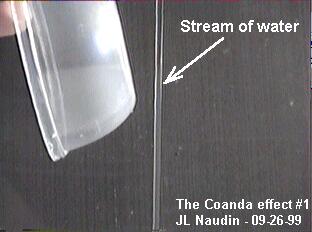
The water follows the surface of the curved shape, this is the Coanda Effect (see below) :
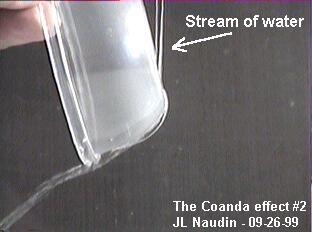
The Coanda Effect works with any of our usual fluids, such as air at usual temperature, pressures and speeds.
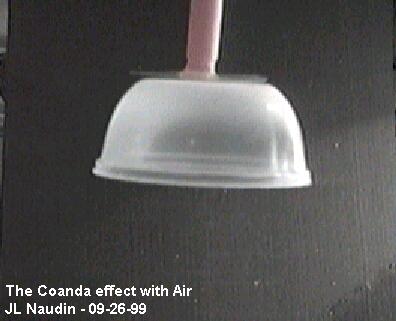
See also : THE COANDA FLYING SAUCER TESTS
You may see also the video of the Coanda Effect in action with a water stream :
RealVideo of the Coanda Effect in action (48kb)
( if you don't have the RealPlayer 5.0, you may download it freely at : http://www.real.com/products/player/ )
To understand better the Coanda effect model applied to an aircraft design, I recommend you to read these papers :
See also ; THE COANDA FLYING SAUCER TESTS ( Repulsin type A )
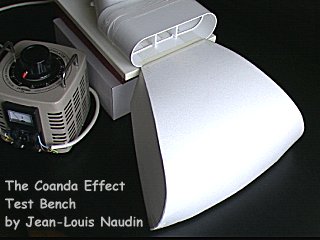
The Coanda Effect Test Bench (CETB), a very
useful engineering tool
The
GFS UAV, a Coanda effect flying saucer ![]()
![]() Email : JNaudin509@aol.com
Email : JNaudin509@aol.com
Return to the Vortex
technologies page